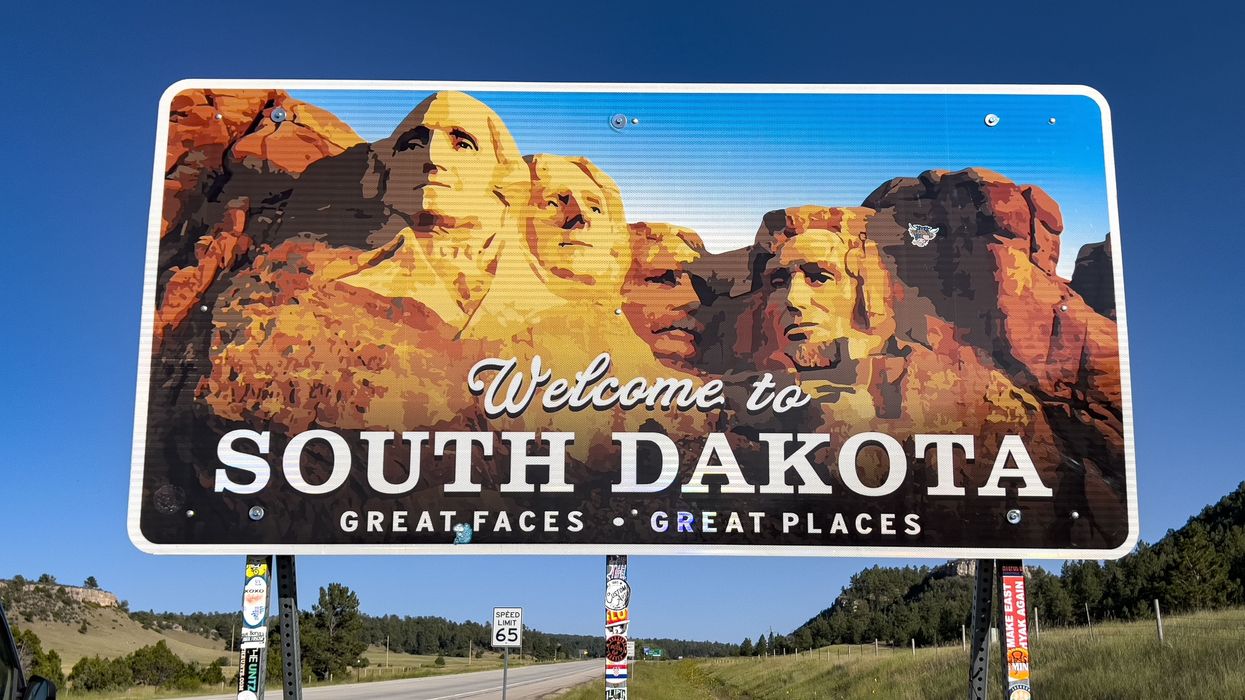Downey is an intern for The Fulcrum and a graduate student at Northwestern's Medill School of Journalism.
This fall, voters in deeply red South Dakota will decide if they want to replace their closed primaries by joining a handful of other states that run open, nonpartisan systems.
The ballot measure, approved by the secretary of state last month, would establish a top-two primary system for gubernatorial, legislative, county and congressional races. If approved all candidates, regardless of party affiliation, would compete on a single primary ballot with the two receiving the most votes moving on to the general election. In addition, all registered voters would be able to cast ballots.
In the current, closed primary system, voters must register with a political party if they wish to cast a ballot in a primary, meaning South Dakota’s second largest voting group — unaffiliated and independent voters — cannot vote in a primary.
“All the states around us have more accessibility for independents in their elections. We are uniquely closed with our approach to the primary here on the Northern Plains, so we just want to catch up with what our neighbors are doing and allow our independents to have a voice in selecting the leaders and representatives,” said Joe Kirby, a member of the South Dakota Open Primaries board of directors.
South Dakota is one of 15 states that currently hold fully closed primaries, according to Unite America. Neighboring states Montana, North Dakota and Minnesota have open primaries while Wyoming and Iowa hold semi-open primaries, in which independents can choose to vote in one partisan primary, while registered Democrats and Republicans can only vote in their own party’s primary. The state’s southern neighbor, Nebraska, holds a different kind of open-primary system where independent voters can choose which partisan primary to vote in for congressional and statewide offices, but top-two open primaries are held for the unicameral, nonpartisan Legislature.
Independent voters are traditionally the ones who benefit the most from primary reform.
“If they’re focused on any particular form [of democracy reform], it’s primary reform because that’s about their right to vote,” said Jeremy Gruber, senior vice president of Open Primaries, which advocates for open and nonpartisan primary systems. “And it’s an issue of whether or not they can participate in a system they pay for and be on equal footing with every other voter.”
And while the number of independent voters is growing in South Dakota “because people are getting sick of politics as usual,” there is also support for open primaries amongst Republicans in the state, said Kirby.
“The mainstream Republicans that I would consider myself a part of are seeing growing numbers of election deniers and MAGA people that are getting very aggressive within the party and splitting the party into two factions,” Kirby said. “We see open primaries as a vehicle toward normalizing politics once again.”
The South Dakota Republican Party chair, John Wiik, felt that the ballot measure was unnecessary and independent or unaffiliated voters in the state should consider joining a party if they want to cast a ballot in primary elections.
“Find a party you agree with. Find a party that 80 percent of your values [you] identify with and join that party. You can’t stay independent and tell the parties how to do their jobs. That would be the words I would say for an independent voter right now,” Wiik told a local South Dakota news outlet.
Kirby and South Dakota Open Primaries, the group sponsoring the ballot question, collected 36,350 signatures from South Dakotans in support of the measure. South Dakota requires 35,017 valid signatures be collected for an initiated constitutional amendment to be approved for the ballot.
This is not the first attempt at establishing open primaries in the Republican-dominated state. “We actually started in 2016 with a slightly different measure which failed because we went for two things at once. We were going to open the primaries and also remove party labels from the ballot,” Kirby said. “We learned that when you combine two issues into a single initiative, you combine the negatives of both.”
Four states currently hold nonpartisan primaries. California and Washington operate top-two open primaries while Louisiana did away with primaries altogether but holds a runoff in races where no candidate wins a majority. In 2022, Alaska debuted a system that combines a top-four primary with ranked-choice voting in the general election, but a new ballot initiative is looking to do away with RCV this November.
Nevada is the only other state whose primary reform initiative has been approved to appear on the ballot this fall. Unlike South Dakota, Nevada’s ballot measure has combined two issues into one: open primaries and ranked-choice voting.
Nevada’s initiative first appeared on the ballot in 2022. The state requires approval in two consecutive general elections before an initiated constitutional amendment can go into effect. If approved in November, Nevada will become the sixth state to hold nonpartisan primaries and the first to establish a top-five ranked-choice voting system.
Kirby is an advocate for RCV, but thinks that gaining support for election reform measures is easier when the change is less complicated. “We think our chances are better than most because we’re keeping it simple with the top-two primary, as opposed to trying to also sell ranked-choice voting,” he said.
South Dakotans will have two other ballot measures to consider this November: a measure to protect abortion rights and a measure to repeal the state grocery tax. A measure to legalize recreational marijuana is awaiting certification to appear on the ballot.




















Trump & Hegseth gave Mark Kelly a huge 2028 gift